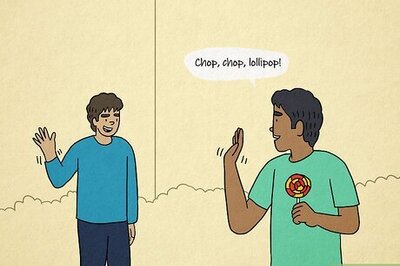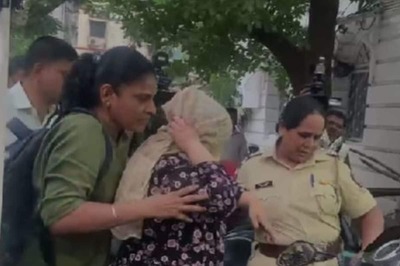
views
Thirty-three children between the age of 5 and 18, all male, sat in huddles, for an unexpected experience. The speeches by the visitors, in chaste Odia, would have seemed incomprehensible to them. But they could sense that something hopeful and enabling was happening. The main point the speakers made was on the benefits of education, but more than what they said, the mere fact that the group was the object of such attention was a beacon. If you are poor, abandoned by your parents, or housed in an orphanage, you would understand what must have been going on in the minds of these children. Their vacant looks occasionally lit up when words of encouragement were spoken. To be poor is certainly not fun, when you live in a mud hut at Viveka Bharati Sevashram at Dagarapada of Soro in Balasore district with little light, open to nature’s fury, with eerie cries of jackals at night. The darkness is your only protective ring. In your ordeal, you have to locate a different toilet in the open field everyday. Everyday of your life haunts you, as a series of accidents and sorrowful episodes. Only sometimes, you stumble upon an offering from a group of strangers - old clothes, grain, biscuits and sweets, and plain smiles, and your world comes alive. These children have borne such pain that they did not even look us in the eye. But we live on hope, and our best dreams are tied dreams. In Lambodar Dalai these children have a guardian whose commitment to them is his life’s mission, and for the bachelor, they are his own. Dalai is alone in his enterprise, with only one part-time teacher. Who would come to work in a lone homestead in such a remote and poor area without a toilet, with only a tube-well and a few scattered homesteads in the neighborhood? You cannot live by example alone, or by skills. You need the tools for sustenance. The situation desperately cries for help, but the results are showing. As Dalai told us, even without the intellectual resources to fully understand the despairing reality around them, the children nevertheless have a good understanding of the moral issues involved. It is Dalai who is their parent, and they will stand by him in a way they might not for their biological parents. This is bonding in depth, and we should never underestimate their capability to understand the larger purpose. The four hours we spent at the orphanage seemed like eternity, because, when you are confronted with such crushing poverty, time seems suspended. But on the drive back to Bhubaneswar we felt less sorrowful than liberated. We can reflect on the lesson: All we need is a steady moral compass, and a realisation that even the tiniest help makes a difference. We have tens of thousands of such homesteads in Odisha alone, and what is needed is for all of us to come forward, and help those for whom destitution is not a memory, but a hellish reality.(Jitendra Nath Misra is an Indian Foreign Service officer. The views expressed in the article are his personal and do not reflect the views of the Government of India.)




















Comments
0 comment